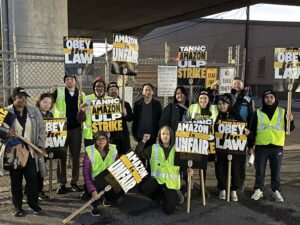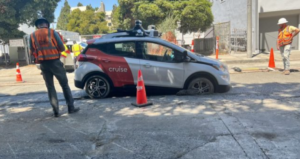New laws taking effect in 2020 and their impact on workers
January 3, 2020As the new year starts, it is time for a look back to some of the significant bills passed by the California Legislature this year, as well as a look ahead to drivers’ license changes taking effect in the New Year.
AB-5: Ending worker misclassification
The biggest news out of Sacramento is the passage of AB-5. This bill codifies the Supreme Court’s decision last year in the Dynamex case that drew the line between workers who are employees and those who are legitimately treated as independent contractors.
Under AB-5, the Labor Code, Unemployment Insurance Code and the wage orders of the Industrial Welfare Commission will consider a worker an employee unless the employer meets what is called the “ABC test.” Under the three-part test, a true independent contractor (A) must be free from the control and direction of the hiring entity in performing the work, (B) must perform work that is outside the usual course of the hiring entity’s business, and (C) must be customarily engaged in an independently established trade, occupation, or business.
Under the ABC test it will be more difficult for employers to designate their employees as sham independent contractors to evade labor laws and other responsibilities.
SB-83 & AB-1223: Extending paid leave
Two bills will extend the time that employees can take for paid leave through the state’s paid leave and disability insurance program.
SB-83, which takes effect on July 1, 2020, extends from 6 to 8 the number of weeks of paid leave for workers who take time off to take care of a sick family member or for parental leave with a new child within one year of the child’s birth or foster placement.
Under AB-1223, private and public employers are required to provide at least 30 days of additional unpaid leave for organ donation. Public employees must first use all of their available sick leave before taking unpaid leave.
REAL ID
Finally, starting on October 1, 2020, the federal government will only accept state-issued IDs and drivers licenses if they comply with federal REAL ID standards. For those with commercial drivers licenses, to renew your CDL you will have to bring the required documents to comply with REAL ID. Those are: (1) a document that proves your identity and legal presence in the United States, such as a passport, certificate of naturalization, or birth certificate for those born in the United States, (2) a document that proves your Social Security Number, such as a Social Security card or W-2 that shows the entire Social Security number, and (3) two different documents that prove your California residency at your home address, such as a bill or bank statement. These documents must be in paper form, even if you normally pay your bills or receive bank statements online.
If you need to review your CDL and you do not have a copy of your birth certificate or certificate of naturalization, we recommend that you plan ahead and request those documents as soon as possible. There are some reports of delays by the Department of Homeland Security in processing requests for certificates of naturalization.
Happy new year! Wishing you and your family all the best in 2020.





